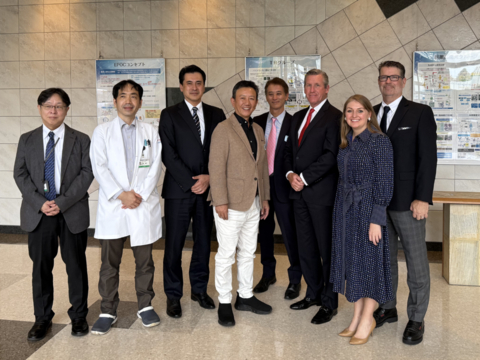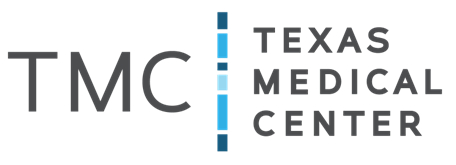HOUSTON--(BUSINESS WIRE)--Today, Texas Medical Center (TMC) in partnership with Japan-based organizations Mitsui Fudosan Co., Ltd. and The National Cancer Center, Japan’s leader in cancer treatment, announced the launch of the TMC Japan BioBridge and JACT (Japan-Accelerator Cancer Therapeutics and Medical Devices)—a strategic alliance that aims to advance cancer treatment by connecting Japanese innovators with Texas Medical Center experts and providing a pathway for US market expansion.
“The launch of TMC Japan BioBridge is a vital step forward in connecting two global leaders in healthcare innovation,” said William F. McKeon, President & CEO at TMC. “Japan’s leadership has demonstrated an impressive commitment to advance medical cures and life sciences technologies and through this partnership, we are opening necessary doors for Japanese researchers and innovators to access the US market and collaborate with our TMC ecosystem. Together, we aim to accelerate critical breakthroughs to make a difference for patients all around the world.”
In 2016, TMC launched the organization’s first BioBridge, designed to provide a focused and strategic pathway for international healthcare companies preparing for US market expansion. JACT will offer this structured process for oncology companies in Japan, starting with an initial program period where participants will gain insights into the US healthcare system. From there, these companies will meet decision-makers from pharmaceutical companies, hospital systems, and investors, receiving expert feedback on preparing for US regulatory approvals.
“The TMC Japan BioBridge provides an exciting, focused opportunity for Japanese companies to understand and navigate the complexities of US healthcare,” said Takeshi Ozane, General Manager of Kashiwanoha Urban Planning and Development Department at Mitsui Fudosan Co., Ltd. “We are honored to be a leading part of this initiative that fosters innovation and collaboration between Japan and the United States in cancer treatment and the life sciences sector.”
JACT will focus on three key areas throughout the program: 1) milestone development and financial planning, where participants will receive guidance on developing product milestones and managing financial requirements to support their US market ambitions, 2) clinical and regulatory expertise, where participants will receive access to US-based key opinion leaders and mentors in clinical trial design, manufacturing, and regulatory strategy for streamlined US entry, and 3) strategic partnerships and market insights, where participants will be connected with venture investors, strategic partners, and US-based healthcare advisors to support successful commercialization.
A delegation from the Texas Medical Center recently visited Tokyo, Japan, for a week of discussions centered on the development of Houston’s innovation ecosystem, Japan’s bio-industry policies and plans to support life sciences ventures. Participating Japanese institutions included AMED (Japan Agency for Medical Research and Development), NCC (National Cancer Center), MHLW (Ministry of Health, Labour and Welfare), JBA (Japan Bioindustry Association), and JETRO (Japan External Trade Organization), among others.
“This TMC Japan BioBridge and JACT Program will enable us to promote the advancement of start-up companies aiming to commercialize innovative medical technologies originating in Japan into the U.S. We also hope this collaboration will not be limited to our AMED-supported project (National Cancer Center Seed Acceleration Program: NCC SAP) but will lead to further cooperation between TMC, NCC, and other Japanese institutions in various fields,” said Hitoshi Nakagama, President of the National Cancer Center of Japan.
The TMC Japan BioBridge Memorandum of Understanding (MoU) was signed on November 5, 2024, in Tokyo, Japan, by William F. McKeon, President and CEO of Texas Medical Center; Takeshi Ozane, General Manager of Mitsui Fudosan Co., Ltd.; and Hitoshi Nakagama, President of the National Cancer Center of Japan.
This is the sixth international strategic alliance, including those with the Netherlands, Australia, the United Kingdom, Denmark, and Ireland. Since 2016, TMC's BioBridges have welcomed 88 startup companies specializing in digital health and medical devices across various critical areas such as neurology, oncology, patient engagement, surgery, orthopedics, cardiovascular health, transplantation, intensive care, and ophthalmology. JACT introduces the opportunity for collaboration and knowledge to further expand TMC’s global footprint and commitment to healthcare innovation.
About Texas Medical Center (TMC): TMC is the world's most comprehensive life science ecosystem at the forefront of advancing life sciences. TMC is on a mission to further accelerate the pace of healing by harnessing our collective expertise in innovation, research, development, production, and patient care within a single, centralized medical ecosystem. With over 70+ million square feet and 120,000+ employees, TMC is leveraging the collective power by pioneering a revolutionary life sciences initiative to house the entire treatment of life cycle from discovery to delivery, within a single, world-class medical complex, on a scale never seen before.
About Texas Medical Center Innovation (TMCi): Texas Medical Center Innovation forms, fosters, recruits, and funds healthcare companies worldwide that are writing the future of healthcare. TMCi performs diligence on the companies seeking to progress toward clinical and business milestones in collaboration with Texas Medical Center member institutions and our global network of advisors and embedded corporate partners. We align these resources through our globally recognized programs: Biodesign, Accelerator for Cancer Therapeutics, and Health Tech.
About National Cancer Center: The National Cancer Center has been leading Japan's cancer treatment and research since its founding in 1962 as a national institution that serves as the base for cancer treatment and research. Its Central Hospital (Chuo-ku, Tokyo) and East Hospital (Kashiwa-shi, Chiba) are designated as core clinical research hospitals under the Medical Service Act. Based on the philosophy of "working with society to provide optimal cancer treatment for all citizens," as an institution that plays a central role in investigator-initiated clinical trials, it practices cancer countermeasures from the perspectives of both generating world-class research results and maximizing R&D results and widely proposes strategies for doing so.
About Mitsui Fudosan Co.: Mitsui Fudosan is working to create new industries during this time of change in society and the economy. As a "Platformer," the company provides "Places" and "Communities" that bring together the ideas of companies, society, and individuals. In April 2024, it launched a Group’s New Long-Term Vision, setting a strategy to explore areas beyond real estate. To support this, Innovation Promoting Division was established to drive innovation and help create new industries. At Kashiwa-no-ha Smart City, Mitsui Fudosan works with the public, private, and academic sectors to create a community where people can live healthy lives and where new life science industries can grow.




